
Common Orthodontic Issues – Enfield, CT
Correcting Your Bite to Improve Your Grin

While orthodontic problems are mainly viewed as ruining a smile’s appearance, they can also have a significant impact on your oral health. Some of the consequences may include difficulty chewing, tooth decay, speech impediments, and more. Fortunately, our team at Cordes Orthodontics can offer multiple kinds of treatment options that can effectively address your orthodontic issues and improve your smile for the long term. Read on to learn some of the most common bite problems we can fix and how they can affect you. Feel free to call our office if you have any questions.
Underbite
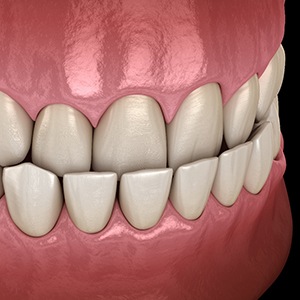
An underbite is when your lower jaw reaches past your upper jaw, resulting in your bottom teeth sitting before your upper ones when biting down. This can often cause you to have difficulty chewing your meals properly as well as significantly affecting your facial structure, as you might develop a protruding chin.
Overbite
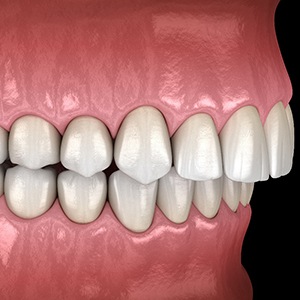
In a normal bite, your upper teeth should sit slightly in front of your lower ones when closing your mouth. That said, if your upper pearly whites rest too far ahead, then this is what’s called an overbite. If left untreated, this orthodontic issue can cause your enamel to wear down prematurely. Your lower teeth can also nip at the roof of your mouth, resulting in soreness and discomfort in that area of oral tissue.
Generally Crooked Teeth
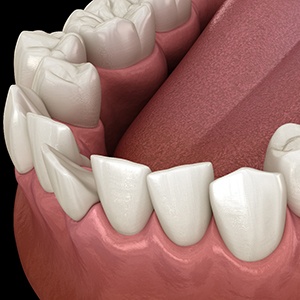
Have you been struggling with one or several rotated or crooked teeth? Not only is this noticeable, but it can result in dental malocclusion or an uneven bite. This condition can be due to a variety of reasons, including trauma, genetics, or simply from having a small mouth.
Open Bite
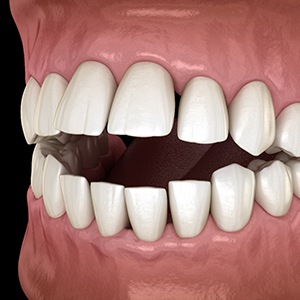
If you close your mouth but only your back teeth are touching while the upper and lower front ones remain apart, then you may have an open bite. This orthodontic issue is typically caused by excessive thumb or finger sucking as a child, which can drastically affect your ability to chew properly and speak clearly.
Impacted Teeth
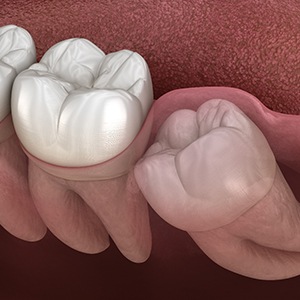
If you have certain pearly whites that haven’t erupted past the gumline or fully grown into their proper position, then you might have impacted teeth. These are usually identified via an X-ray during a regular dental examination. While this condition may not have any noticeable symptoms, you should get it addressed to avoid further complications from arising.
Overcrowded Teeth
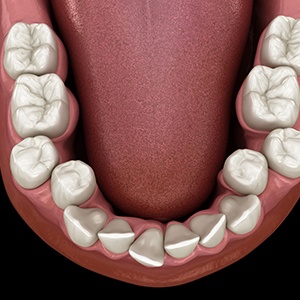
Some people grow up with more teeth than normal or experience certain developmental issues in their jaw, both of which can result in an overcrowded smile. This orthodontic problem can leave your teeth vulnerable to damage and decay, as food and particles can easily get stuck between them. You might even experience strain in your jaw joint due to an uneven bite.
Gaps Between Teeth
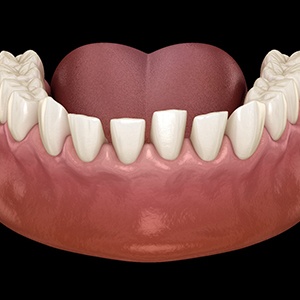
Sometimes a person’s teeth can become too spaced apart either due to a wider dental arch, missing teeth, or smaller teeth. Not only can this lead to uncomfortable chewing, but you might experience gum irritation, especially since food and bacteria can easily accumulate in the gaps.
Crossbite
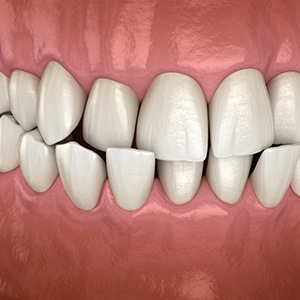
This orthodontic issue involves one or some of your upper teeth resting behind your lower ones. If left untreated, a crossbite can impede jaw function and development. This condition can occur on one or both sides of the mouth.
Excessive Overjet
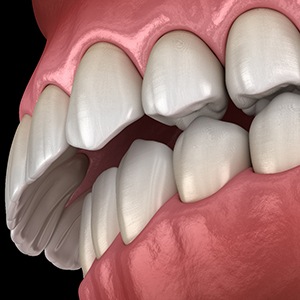
An excessive overjet is when the top front teeth stick out far beyond the bottom ones, creating a significant gap between the bottom and top arches. This can result in your top teeth looking much larger in comparison, and you might experience some difficulties with speaking and eating food properly.
Orthodontic Extractions
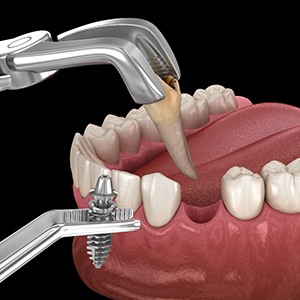
In some cases, our team may need to extract a tooth (or teeth) to effectively correct your orthodontic situation. Rest assured; this option is reserved solely as a last resort. The only reason we’ll recommend performing this procedure is if it’s the best solution for improving your bite and oral health.